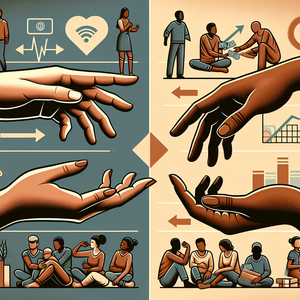The Unseen Workforce: Remote Hiring Trends in Austin Tech Companies

The pandemic accelerated a trend that was already gaining traction: remote work became not just a necessity but a viable option for many businesses. In Austin, this shift has been embraced by both established firms and startups. Companies like Dell Technologies, which has long offered flexible work options, quickly transitioned to a fully remote model, while newer companies, such as Everlywell, adopted remote work policies from their inception. HR leaders in Austin's tech scene have reported that remote work has broadened their talent pool. Sarah Johnson, HR Director of a prominent Austin software company, states, "We are no longer limited to hiring local talent. We can now attract the best candidates from across the country, which has significantly enhanced our team's diversity and skill set." This shift has allowed companies to tap into a broader range of skills and experiences, ultimately leading to more innovative and diverse teams.
Innovative Hiring Strategies
As companies adapt to a remote workforce, innovative hiring strategies have emerged. Virtual interviews have become the norm, with many organizations leveraging video conferencing tools like Zoom and Google Meet to facilitate the hiring process. Additionally, companies are utilizing asynchronous interview methods, allowing candidates to record answers to pre-set questions, which offers flexibility for both the interviewer and the candidate. Some Austin tech companies are incorporating skills assessments and virtual work simulations into their hiring processes. For example, a local startup recently introduced a coding challenge that allows candidates to showcase their skills in real-time, helping to identify the most qualified applicants without geographical constraints. This approach not only streamlines the hiring process but also provides a more accurate assessment of a candidate's capabilities.
Maintaining Company Culture
One of the significant challenges of remote work is maintaining a cohesive company culture. In Austin, many tech companies are proactively addressing this issue by implementing virtual team-building activities and regular check-ins. David Chen, CEO of a successful Austin-based tech firm, emphasizes the importance of communication: "We've found that it's essential to prioritize communication and connection. We host weekly virtual coffee chats where team members can share updates and bond over non-work topics." Moreover, companies have invested in collaborative tools that foster a sense of community among remote employees. Platforms like Slack, Microsoft Teams, and Trello have become integral in creating an environment where employees feel engaged and connected, regardless of their physical location. These tools help maintain transparency and facilitate collaboration, ensuring that remote employees remain integrated into the company culture.
The Importance of Inclusivity
Remote hiring also raises important questions about inclusivity. For many candidates, the remote work model has reduced barriers related to geography, transportation, and even disability. Companies are recognizing the importance of creating equitable opportunities for all applicants. Lisa Martinez, Diversity and Inclusion Officer at a leading tech company in Austin, highlights this shift: "We've seen an increase in applications from underrepresented groups since we expanded our remote hiring practices." However, the challenge remains to ensure that all employees feel included and valued in a remote setting. Companies are increasingly focusing on training for managers to foster inclusive practices, ensuring that all voices are heard, regardless of the work environment. This commitment to inclusivity not only helps build a more diverse workforce but also promotes innovation by bringing together a range of perspectives.
As Austin's tech companies navigate the complexities of remote work, they are finding innovative solutions to enhance their hiring processes and maintain a vibrant company culture. The shift to remote work has opened up new opportunities for talent acquisition, enabling companies to build diverse and skilled teams. While challenges remain, the adaptability and creativity displayed by Austin's tech industry provide a roadmap for others to follow. As we look to the future, it is clear that the lessons learned during this period will shape the workforce for years to come, making remote work not just a temporary adjustment, but a sustainable model for success in the tech industry. By embracing remote hiring trends, Austin tech companies are not only ensuring their survival in a changing world but are also setting the stage for a more inclusive and innovative future.
Remote Software Development Engineer in Test (SDET)
Dell Technologies, Everlywell, BigCommerce
Job Description
Design and implement automated testing frameworks to ensure software quality.
Collaborate with development teams to identify testing requirements and develop test cases.
Proficiency in programming languages such as Java, Python, or C#, along with experience in testing tools like Selenium or JUnit.
Cloud Solutions Architect
Oracle, IBM, Dropbox
Job Description
Develop cloud-based solutions to meet client needs, focusing on scalability and security.
Collaborate with cross-functional teams to design and deploy cloud architectures on platforms like AWS, Azure, or Google Cloud.
Strong understanding of cloud services, system architecture, and experience with cloud-native application development.
Data Scientist - Remote
Indeed, HomeAway, RetailMeNot
Job Description
Analyze complex datasets to derive actionable insights and drive business decisions.
Build predictive models and algorithms using machine learning techniques, ensuring high accuracy and performance.
Proficiency in programming languages such as R or Python, along with experience in data visualization tools like Tableau or Power BI.
UX/UI Designer
Spiceworks, Yeti
Job Description
Create user-centered designs by conducting user research and testing to improve overall user experience.
Develop wireframes, prototypes, and visual designs while collaborating closely with developers and product managers.
Expertise in design tools like Sketch, Figma, or Adobe XD, along with a strong portfolio demonstrating design thinking skills.
Technical Project Manager
National Instruments, Cisco, Silicon Labs
Job Description
Lead cross-functional teams to ensure timely project delivery while adhering to budget constraints.
Utilize project management methodologies (Agile, Scrum) to facilitate communication and collaboration among team members.
Strong background in software development processes and excellent stakeholder management skills.


